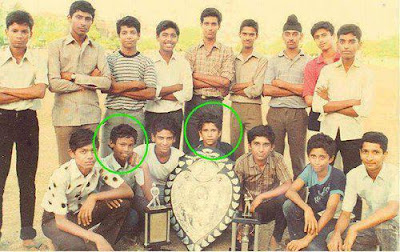On 14 November 1987, Sachin Tendulkar was selected to represent Bombay in the Ranji Trophy, India's premier domestic first-class cricket tournament, for the 1987–88 season. However, he was not selected for the final eleven in any of the matches. A year later, on 11 December 1988, aged just 15 years and 232 days, Tendulkar made his debut for Bombay against Gujarat at home and scored 100 not out in that match, making him the youngest Indian to score a century on first-class debut. He was handpicked to play for the team by the then Mumbai captain Dilip Vengsarkar after watching him easily negotiating India's best fast bowler at the time, Kapil Dev, in the Wankhede Stadium nets, where the Indian team had come to play against the touring New Zealand team. He followed this by scoring a century in his first Deodhar and Duleep Trophies, which are also Indian domestic tournaments.
Sachin Tendulkar finished the 1988–89 season as Bombay's highest run-scorer. He also made an unbeaten century in the Irani Trophy match against Delhi at the start of the 1989–90 season, playing for the Rest of India.
Raj Singh Dungarpur is credited for the selection of Tendulkar for the Indian tour of Pakistan in late 1989, and that also after just one first class season. Tendulkar made his Test debut against Pakistan in Karachi in November 1989 aged just 16 years and 223 days.
Sachin Tendulkar's rise continued when he was the leading run scorer at the 1996 World Cup, scoring two centuries.
Sachin Tendulkar's two tenures as captain of the Indian cricket team were not very successful. When Tendulkar took over as captain in 1996, it was with huge hopes and expectations. However, by 1997 the team was performing poorly.
Sachin Tendulkar, succeeding Azharuddin as captain for his second term, then led India on a tour of Australia, where the visitors were comprehensively beaten 3–0 by the newly crowned world champions. After another Test series defeat, this time by a 0–2 margin at home against South Africa, Tendulkar resigned, and Sourav Ganguly took over as captain in 2000.
Sachin Tendulkar remains an integral part of the Indian team's strategic processes. He is often seen in discussion with the captain, at times actively involved in building strategies.
Sachin Tendulkar continued performing well in Test cricket in 2001 and 2002, with some pivotal performances with both bat and ball.




































0 comments: